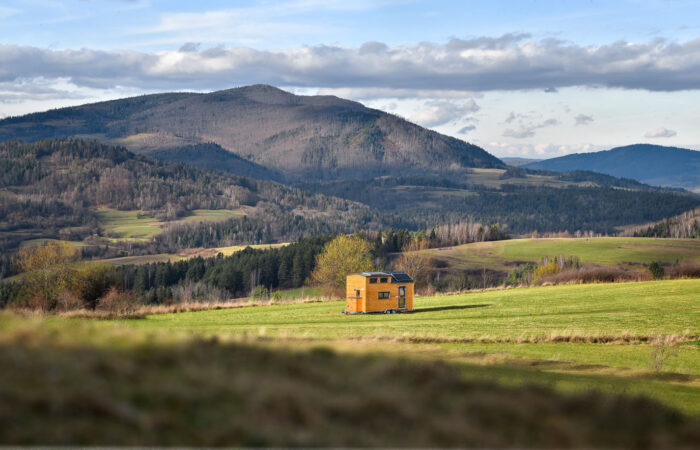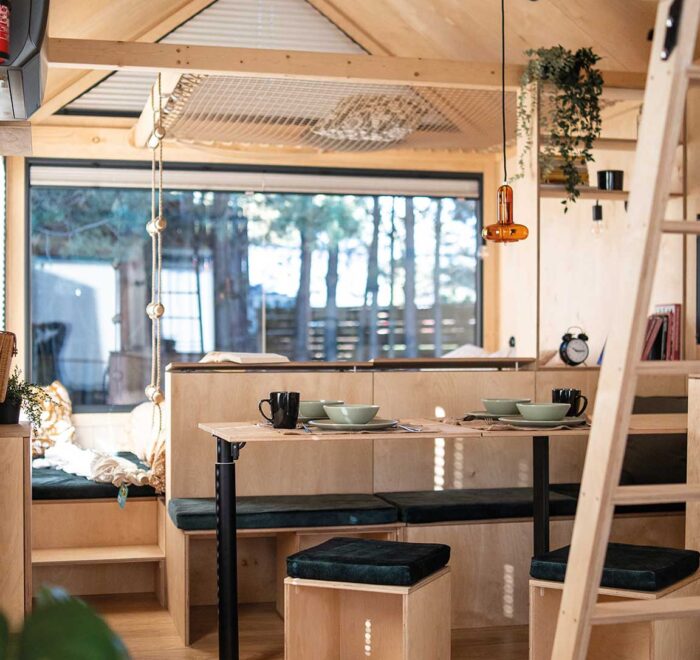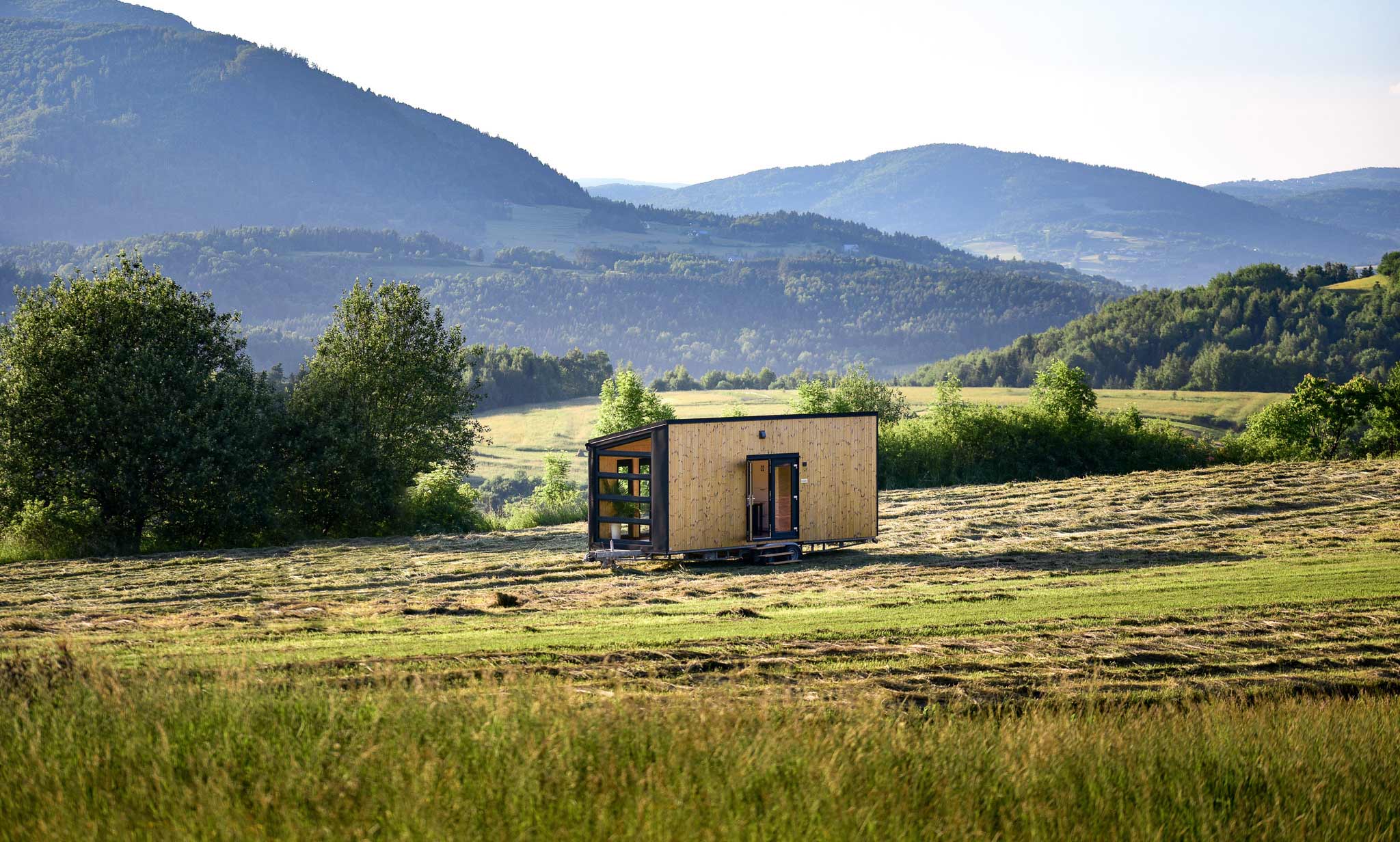A collection of premium tiny houses on wheels designed for off-grid living, flexible lifestyles, and sustainable living. Whether you’re looking for a full-time home, an off-grid retreat, or a rental investment, our beautifully crafted mobile homes bring nature, functionality, and innovation together.
Tiny houses are small, fully-equipped living spaces that are designed as the centrepiece of a more sustainable, off-grid lifestyle. Although they vary in size and shape, they tend to be between 15 and 50 square metres in capacity. They’re made of sustainable materials and are easier — and cheaper — to maintain than traditional brick homes.
Tiny houses can be placed on solid foundations but are commonly built with migration in mind. This freedom to move comes from their designation as temporary housing, which often exempts them from local planning permission. They’re also playing a big part in a growing movement away from the stresses and strains of city life back towards the peace and tranquility of nature.

The tiny house movement began in the USA before gaining popularity in the UK. Although many homeowners have quickly embraced the material benefits of tiny houses — such as reduced start-up costs and smaller bills — the movement is also something of a state of mind. Many tiny house owners find themselves disillusioned with the excesses of modern living and make the decision to replace it with something more nourishing and sustainable.
Small footprint, lower energy use and eco-friendly materials.
Affordable living with low ongoing expenses.
Designed for mobility, allowing you to live anywhere.
Live with only what you need, free yourself from excess.
Perfect for an off grid retreat, holiday rental or eco-tourism business.
Solar power, rainwater collection and composting toilets available.
Investing in a tiny home rental business can be an excellent way to generate passive income while offering unique, in-demand accommodations. Whether you’re a seasoned investor or a landowner looking to monetise your property, The Canopy Collection provides an opportunity to tap into the growing eco-tourism and alternative living market.

Join thousands of readers who discover more to off grid living every week.

If you own rural land, farmland, or nature-based property, you could be sitting on a goldmine of potential income. Adding tiny homes to your land offers a low-maintenance, high-revenue opportunity to create an eco-retreat or short rental business.
One of the biggest draws of the tiny house movement is the sense of liberation it can bring. As tiny houses are classed as temporary living accommodation, you have the freedom to move and explore as you see fit. Alternatively, if you’re eco-conscious, many of the houses come with renewable energy options, helping you to reduce your carbon footprint and do your bit for Mother Nature.
Please fill in the application form below to request a quote. We aim to contact you within 24 hours to proceed.